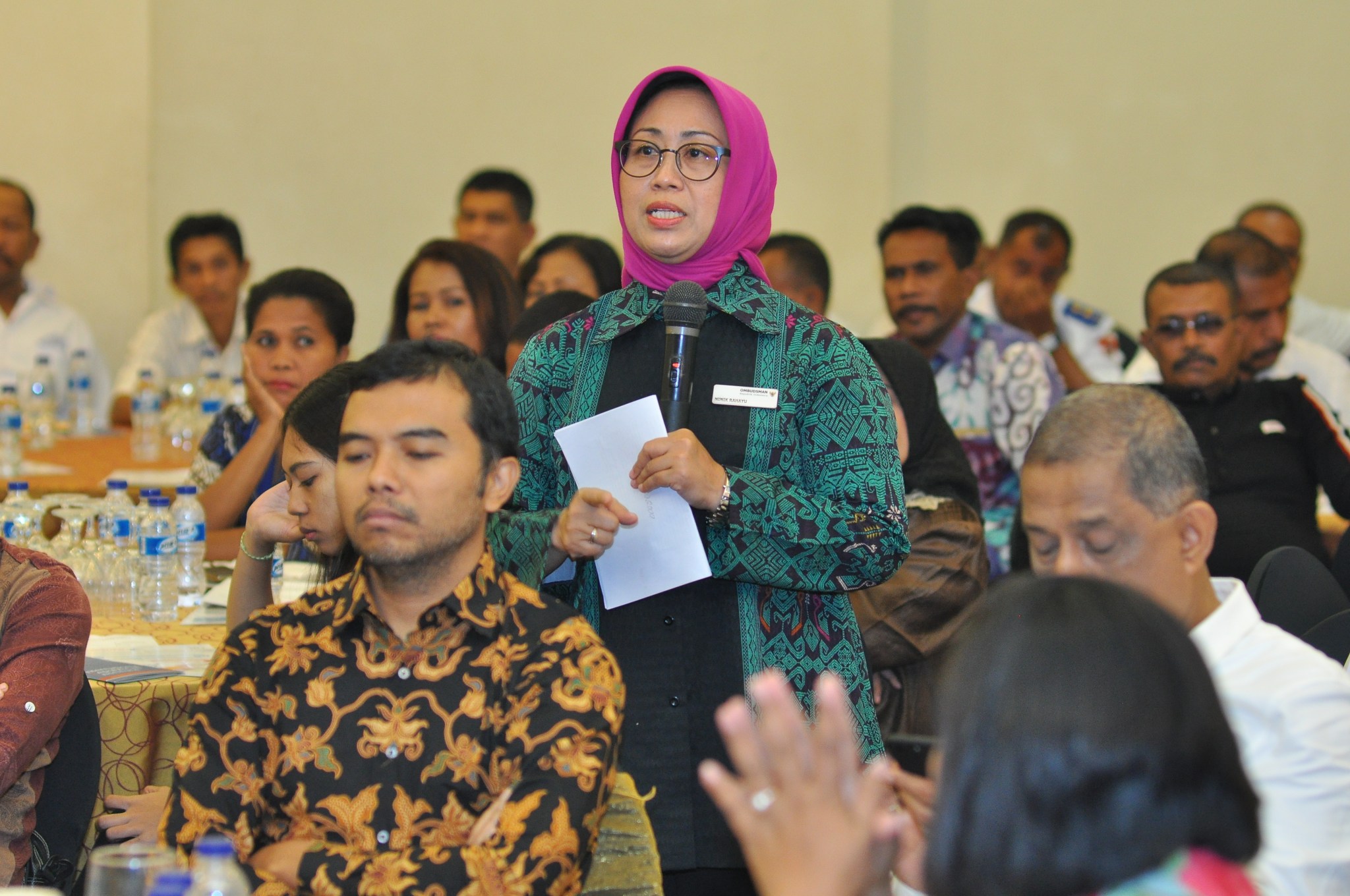Transparency and Accountability Initiatives: Making Impact in One Indonesian City

Indonesia is the third largest democracy in the world and has the largest economy in Southeast Asia. In recent years, the island has experienced significant economic growth and has become a regional power. However, the country continues to face significant challenges such as corruption.
In 2011, the Republic of Indonesia mandated that all citizens carry national identification cards to crack down on fraud and improve the government process of registering citizens. Despite the intentions of the reform the inadequate infrastructure of citizen I.D. offices and changes in processing procedures resulted in significantly longer wait periods for citizens seeking their national I.D. cards. Frustration with the process drove many citizens to use illicit “handlers,” or individuals with connections within the bureaucracy who could expedite the process.
Last year, IRI tapped into a network of transparency activists and committed elected leaders in Ambon City, Indonesia, to implement our Vulnerabilities to Corruption Approach (VCA). This innovative approach helps address the challenges of corruption by bringing government and citizens together to identify potential problem areas in government processes and develop workable solutions. IRI does this through a qualitative assessment that accounts for how power and resources are distributed and how those in power view or perceive the current political system. This assessment is then reported to key decision makers and stakeholders like elected officials, civil society leaders, community activists, and public employees.
In the city of Ambon, the VCA assessment team worked with local stakeholders to shed light on the bottlenecks that were pushing people to rely on handlers and come up with a series of recommendations on how to improve service delivery as well as subsequent action-items towards improving the citizen I.D. process. Working closely with the Mayor of Ambon, IRI supported a task force of citizen leaders committed to completing the recommendations issued in the VCA report, as well as further promoting the Mayor’s reform agenda.
Among the actions enacted by the task force were a renovation of the citizen I.D. office to improve its efficiency and accessibility, education of public employees on their role and duty to the public, and advocacy training for civil society on transparency and accountability. As a result of these measures, wait times for obtaining citizen I.D.s were significantly reduced, minimizing the incentive for citizens to resort to handlers.
The Institut Tifa Damai Maluku, IRI’s partner in Indonesia, was instrumental in developing, organizing and implementing an advocacy and outreach plan to highlight the corruption reforms enacted by the Mayor. Moreover, the Institut hosted events for citizens to engage in transparency issues including the 2017 Maluku Anti-Corruption Forum in Ambon, which brought together more than 200 participants from civil society, public offices, and various city departments. Guests included the Vice Governor of the Maluku Province, Zet Sahuburua, and Ambon City Mayor, Richard Louhenapessy. Participants at the forum presented on a wide variety of topics including the VCA process, and the subsequent work of the task force in carrying out the VCA assessment team’s recommendations.
The Forum also provided an opportunity to highlight Ambon’s ongoing transparency initiatives as well as share best practices with the surrounding regencies for emulation. As noted by participants at the forum, IRI’s program supported civil society by elevating public awareness of the improved citizen registration office, the role of an Ombudsman in local governance and other transparency and accountability mechanisms available to the public.
Following the successive rounds of advocacy initiatives on the improved service delivery initiatives through television and radio from the Ambon task force program, Maluku Province Ombudsman, Semmy Hatulely, said “I’d like to offer a tremendous thank you to IRI and its VCA program. By involving the Maluku Ombudsman in the process, and promoting the work of the Ombudsman’s office, we’ve found that the number of public comments on ways to improve public service delivery has doubled in the past six months. This is the result of IRI and the task force’s work on raising the visibility of the Ombudsman’s Office with the public and educating them on its role.”
Top